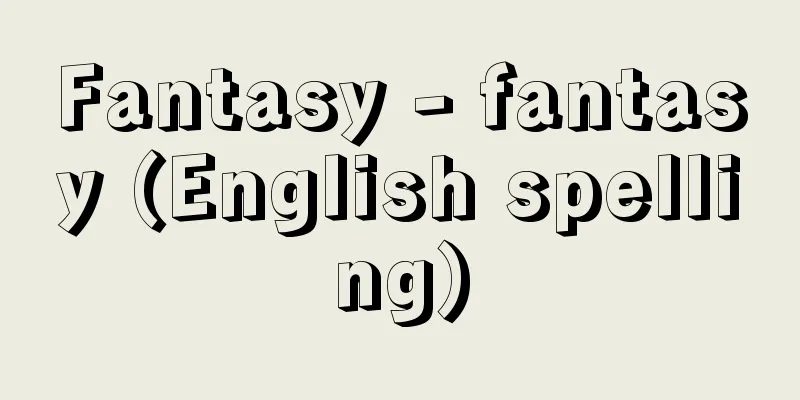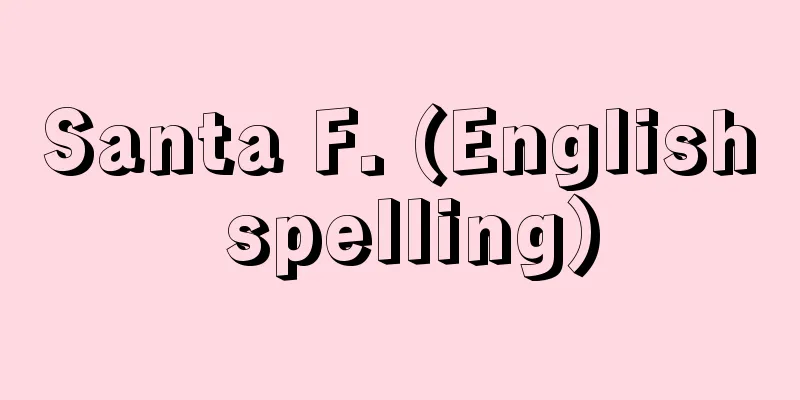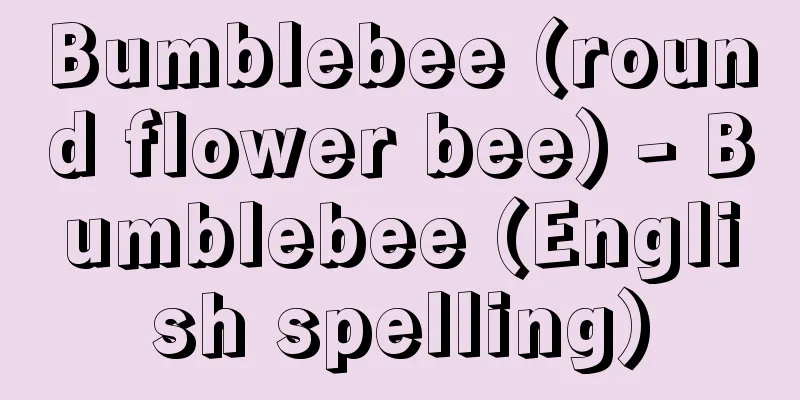Fantasy - fantasy (English spelling)

|
From the Greek, it means "to make visible." In the 15th century, the English word "fancy" was derived, and since then, this "fancy" has been used interchangeably with "imagination" to mean the ability to form images. In the 19th century, Coleridge strictly distinguished the two, stating that imagination is the poetic creative power that fuses and unifies objects, while fancy is merely the ability to combine objects. In the 20th century, Tolkien took up the old word fantasy again, redefining it as a branch of linguistic arts with strangeness and wonder as its content characteristics, created by the ability to "create mental images of things that not only do not actually exist, but are generally believed not to be found anywhere in reality, and that cannot be found there," and found its purest manifestation in "fairy stories." According to the above definition, "fantastic" literature can trace its origins back to myths, legends, fairy tales (or folk tales), and examples can be found in all eras and countries. However, since the second half of the 20th century, children's literature in particular has begun to use the term "fantasy" as a genre to distinguish modern fantasy stories from traditional literature. Some also use the term "adult fantasy" to distinguish fantasy stories for adults. Fantasy in the broad sense, including traditional literature, can be structurally divided into three types. [1] Stories that tell of a wondrous other world that exists independently of the real world, such as Tolkien's The Lord of the Rings. [2] Stories in which the characters travel from reality to another world and experience wonders, such as Lewis Carroll's Alice in Wonderland. [3] Stories in which the unreal invades reality to make wonders come true, such as Kafka's The Metamorphosis. In modern times, there are relatively few examples of type [1], while there are many examples of types [2] and [3], both for children and adults. Also, while there are many countries that produce "fantasy," such as England, Germany, and Scandinavian countries, there are few good examples of fantasy works in Latin countries and Japan (although there are examples such as Miyazawa Kenji and Izumi Kyoka), by considering the reasons for this, we can move on to examining each era and each national character. On the other hand, phantasy is a psychological term that is generally defined as the mental process of imagining things that cannot actually occur in reality and seeking to fulfill one's desires. However, recent studies in depth psychology and psychoanalysis have discovered that the workings of the imagination, which transcend the physical laws of time and space and the laws of causality, are deeply connected to the unconscious, opening the way for fantasy literature to elucidate psychology and psychology to elucidate the characteristics of fantasy literature. [Yoko Inokuma] "The World of Fantasy, by J.R.R. Tolkien, translated by Inokuma Yoko (1973, Fukuinkan Shoten)" ▽ "New Methods of Literary Criticism, by C.S. Lewis, translated by Yamagata Kazumi (1973, Hyoronsha) " ▽ " In Another World, by C.S. Lewis, translated by Nakamura Taeko (1978, Misuzu Shobo)" ▽ "Fantasy Literature: Structure and Function, by Tzvetan Todorov, translated by Watanabe Akimasa and Miyoshi Ikuro (1975, Asahi Press)" ▽ "Children's Literature, by L. Smith, translated by Ishii Momoko, Seta Teiji, et al. (1964, Iwanami Shoten)" [References] | |Source: Shogakukan Encyclopedia Nipponica About Encyclopedia Nipponica Information | Legend |
|
ギリシア語で「見えるようにする」の意。15世紀に英語ではfancyという語が派生し、以後心象形成能力としてはこの「空想力(ファンシー)」が「想像力(イマジネーション)」と混用されたが、19世紀にコールリッジは、対象と融合統一する詩的創造力が想像力であり、空想力は、対象を単に結合する能力にすぎないとして、両者を厳密に区別した。20世紀に入ると、トールキンがふたたび古いファンタジーの語を取り上げ、「実際に存在しないばかりでなく、現実のどこにも発見できないもの、そこにはみいだせないと一般に信じられているものの心象をつくり出す」能力によってつくられ、奇妙さ、不思議さを内容の特質としてもつ言語芸術の一分野として再定義し、その純粋な現れを「妖精物語(フェアリー・ストーリー)」のうちにみいだした。前記のような定義に従えば、「空想的(ファンタスティック)」な文学は、その起源を神話、伝説、妖精物語(あるいは昔話)などにさかのぼることが可能だが、あらゆる時代、さまざまな国にその例を発見できる。だが20世紀後半に入ってから、とくに児童文学が、伝承文学から近代の空想物語を区別するジャンルとして「ファンタジー」の名称を用いるようになった。これに対して成人向きの空想物語を「アダルト・ファンタジー」と称して区別する向きもある。 伝承文学をも含めた広義のファンタジーは、構造的に3種類に分類することが可能である。〔1〕トールキンの『指輪物語』のように現実世界とは独立に存在する驚異的別世界について語る物語。〔2〕ルイス・キャロルの『ふしぎの国のアリス』のように登場人物が現実から別世界へ行き驚異を体験する物語。〔3〕カフカの『変身』のように、非現実が現実へ侵入して驚異を実現する物語。近代においては〔1〕の種類の例が比較的少なく、〔2〕〔3〕の例が児童・成人向きを問わず多いこと、イギリス、ドイツ、北欧の国々のように「ファンタジー」の多産国がある一方、ラテン系の国々、日本(宮沢賢治、泉鏡花などの例はあるが)などによい作品例が少ないことなど、その理由を考察することから、各時代、各国民性の考察に進むことができよう。 一方phantasyは心理学用語で、一般には、現実にありえぬことを思い描き欲望の充足を図る心の働きをさすが、最近の深層心理学、精神分析学は、時、空間の物理的法則や因果律を超越する空想力の働きが無意識と深い関係にあることを発見しており、「ファンタジー」文学が心理学を、心理学が「ファンタジー」文学の特性を解明する道が開かれつつある。 [猪熊葉子] 『J・R・R・トールキン著、猪熊葉子訳『ファンタジーの世界』(1973・福音館書店)』▽『C・S・ルイス著、山形和美訳『新しい文芸批評の方法』(1973・評論社)』▽『C・S・ルイス著、中村妙子訳『別世界にて』(1978・みすず書房)』▽『ツヴェタン・トドロフ著、渡辺明正・三好郁朗訳『幻想文学 構造と機能』(1975・朝日出版社)』▽『L・スミス著、石井桃子・瀬田貞二他訳『児童文学論』(1964・岩波書店)』 [参照項目] | |出典 小学館 日本大百科全書(ニッポニカ)日本大百科全書(ニッポニカ)について 情報 | 凡例 |
Recommend
Kushasura Pawan - Kushasura Pawan
…the title of a governor of a province in the Per...
Disperse dyes - Disperse dyes
Dyes for dyeing hydrophobic synthetic fibers from...
Yamaoka [town] - Yamaoka
A former town in Ena County, southeastern Gifu Pre...
Metal foil - kinzokuhaku (English spelling) metal foil
A highly malleable metal that has been rolled out...
Zeya (river) (English spelling)
The Amur River is a large tributary on the left (e...
Corinth
A port city located in the isthmus at the northeas...
Doyo Newspaper - Doyo Newspaper
A daily newspaper published in Kochi before World ...
Iwakuni River
→Nishikigawa River Source : Heibonsha Encyclopedia...
Stoichiometry - stoichiometry
It refers to the quantitative study of elements a...
Anglo-Saxon style
…The oldest intact example of English architectur...
cock
…(4) Ball valve: A ball-shaped valve body with a ...
Tsukiyono [town] - Tsukiyono
An old town in Tone District, northern Gunma Prefe...
Razor Eel - Razor Eel
...It grows to a total length of 20cm. It has man...
Formation lawsuit - Keisei Sosho
A lawsuit that seeks a judgment to change existing...
Fang
…On the other hand, in Mbini, although there are ...









